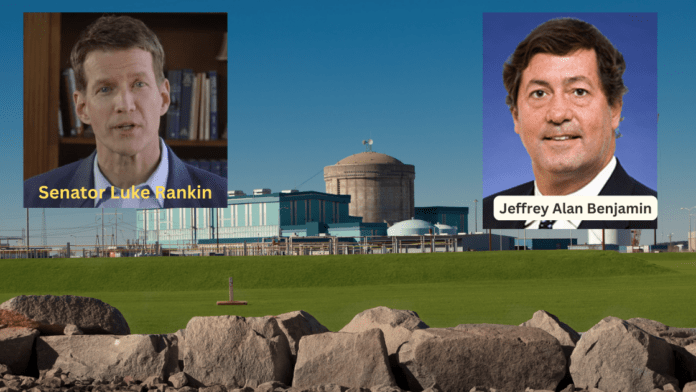In the final case regarding South Carolina’s failed VC Summer nuclear plant, a former top Westinghouse Electric Co. executive pleaded guilty to a charge related to the abandoned project.
During the decade long $9 billion project, now-defunct electric provider SCANA and the state-owned utility Santee Cooper attempted to build two nuclear power reactors at Jenkinsville’s V.C. Summer site.
As MyrtleBeachSC News reported in 2023, the Nuclear Oversight Chairman, Horry County Senator Luke Rankin, attempted to pass some of the costs of the failed project onto electric cooperatives state-wide. Cooperatives, like Horry Electric Cooperative, would have none of it. In hearings, Rankin quickly turned tail and fled as he realized Horry County residents were not going to allow him to double or triple their utility fees simply because of his lack of oversight.
According to court records, as construction problems mounted, costs rose, schedules slipped, and the true status of the project was hidden. The project was eventually abandoned, leading to mass layoffs and higher utility bills.
Jeffrey Alan Benjamin admitted on record in U.S. District Court in Columbia on Dec. 14 that Westinghouse’s projected completion dates for two reactors were off and unattainable.
He told the court Benjamin had attended a quarterly “Presidents’ Meeting” in September 2016 where the competition dates had been discussed. SCANA filed a report a few months later stating the project was still on schedule.
SCANA’s books were inaccurate because Benjamin failed to make a correction.
Benjamin admitted aiding and abetting the failure to keep accurate corporate records.
If he enters a plea agreement, he could receive probation and/or up to a year in prison, along with a $100,000 fine. A sentencing hearing will be held later.
The failure of a business venture, no matter how catastrophic, is not a crime, Holliday said outside the courthouse. Poor performance becomes criminal if money is involved and oversight measures are evaded through a series of misrepresentations and lies.
During the court hearing, Benjamin, who is 61, told Judge Mary Geiger Lewis about his long employment history in the energy industry. For his work in the energy sector, he travels between Florida and Colorado. He has worked at companies across the United States as well as overseas, including the U.K. and Poland.
He was Westinghouse’s senior vice president of new plants and major projects until his services were terminated in March 2017. Around that time, the company filed for bankruptcy and abandoned its South Carolina VC Summer nuclear project.
Initially, Benjamin was charged with conspiracy, wire fraud, and securities fraud charges, with prosecutors claiming he and others concealed the project’s true status.
Benjamin was re-indicted in November on the same charges, which were dropped in the plea agreement after Judge Lewis ruled several grand jurors were ratepayers and potentially biased.
In connection with his work on the VC Summer nuclear project, the U.S. will not be able to press further charges against him.
Benjamin, who resides in Washington, D.C., referred comments outside the courthouse to his attorney, William Michael Sullivan.
“Mr. Benjamin looks forward to continuing to apply his comprehensive professional expertise to the energy industry,” Sullivan said in a prepared statement.
The S.C. nuclear plant debacle concludes with Benjamin’s case.
Outside the courthouse, Holliday said, “On days like today, our thoughts are with the employees, customers, construction workers, and investors who were harmed by the abandonment.”


